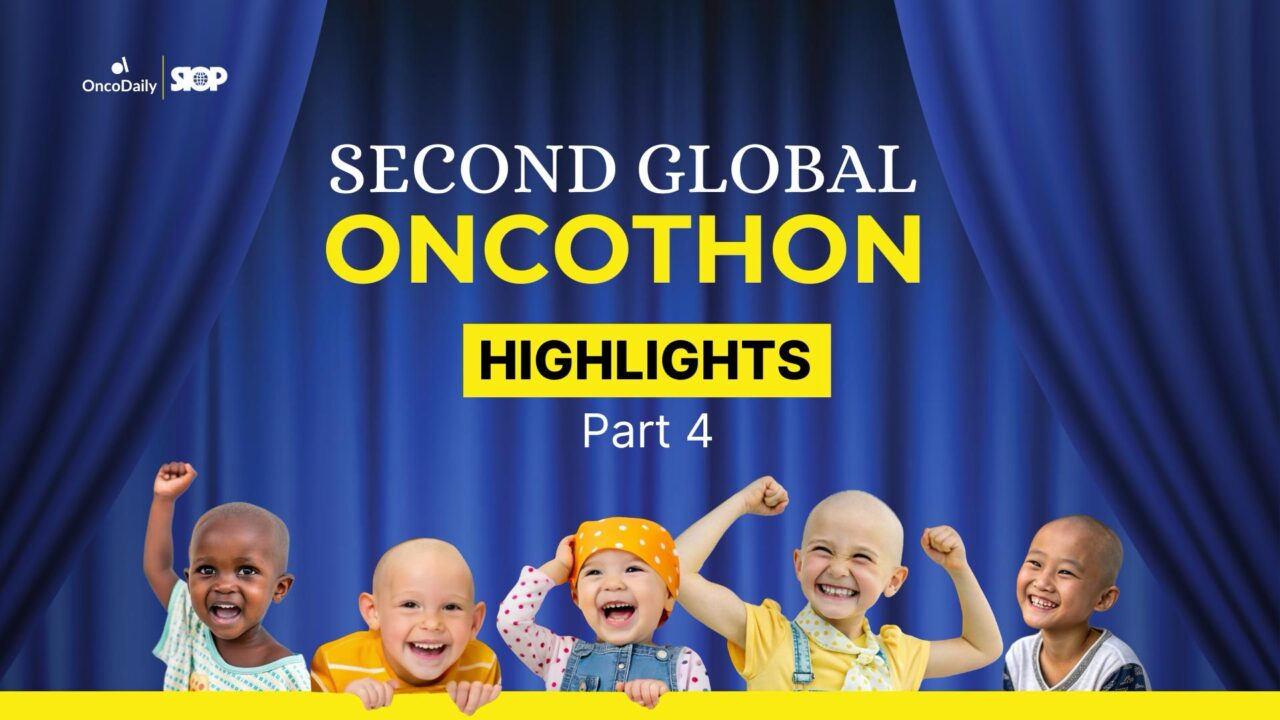OncoDaily and the International Society of Pediatric Oncology (SIOP) hosted the Second Global OncoThon, a 24-hour virtual event on February 15, 2025, for raising funds and awareness for pediatric cancer research. Despite being a leading cause of childhood deaths, pediatric cancer receives far less funding than adult cancers, limiting treatment options.
With nearly half a million new cases each year, children face a critical gap in life-saving therapies. The OncoThon brought people together to share real stories, take action, and push for change. No child should fight cancer alone – now is the time to make a difference.
Inspiring speakers have their stories and insights. Here are some highlights from their talks as we continue this global movement to ensure no child fights cancer alone.
Sultan Stambekov, Medical Oncologist at the National Center of Oncology in the Kyrgyz Republic, spoke about the progress in addressing childhood cancer in Kyrgyzstan, noting that since 2014, many positive changes have taken place. The team has grown and improved, with dedicated professionals working to change the situation for children with cancer. They have received support from the government and various foundations to expand their efforts.
Sultan highlighted the creation of specialized teams for palliative care, surgical oncology, and other critical areas. He emphasized that even in low-income countries, it is possible to make a significant impact if resources are organized and managed appropriately.
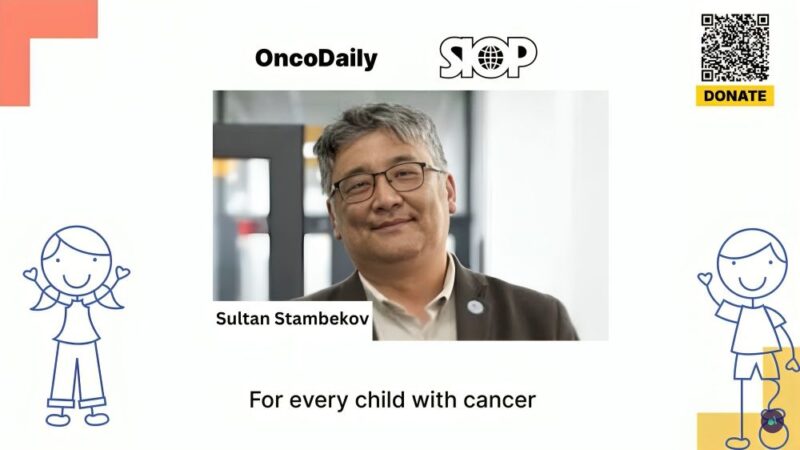
Leslie Lehmann, Clinical Director of the Stem Cell Transplantation Program at Dana-Farber Cancer Institute/Boston Children’s Cancer and Blood Disorders Center, talked about the importance of integrating palliative care into global oncologic care. She emphasized how palliative care, despite being perceived as less innovative or exciting, was essential, often low-cost, and part of a comprehensive framework for patient support.
Lehmann highlighted her experience in Boston treating children undergoing bone marrow transplants, where combining palliative care with curative treatments addressed suffering and provided families with hope. This approach enabled more aggressive therapies while ensuring that the needs of both the child and their family were met, offering a chance for recovery with dignity and reduced suffering.
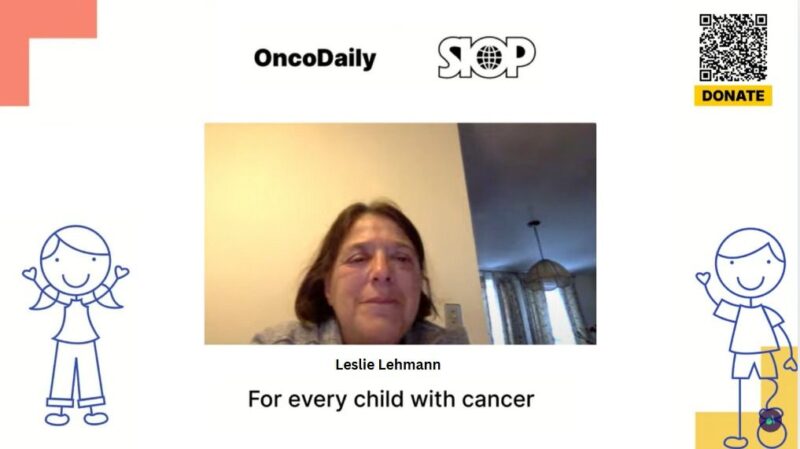
Justin Baker, former Chief of the Division of Quality of Life and Pediatric Palliative Care at Stanford and former Director of the QoLA Program, spoke about the incredible impact that pediatric palliative care had across both oncology and non-oncology departments. He shared that the work of improving quality of life for children with cancer had profound effects not just in the oncology world, but throughout the hospital.
He expressed how meaningful the event was, noting that the International Society of Paediatric Oncology (SIOP) felt like home to him—having been part of it for 20 years. He emphasized how grateful he was for the funding and support provided by SIOP for childhood cancer research, especially in regions where survival rates were still very low. He stressed the need for a high survival rate for these children, and with initiatives like the OncoThon, he believed a significant difference could be made in the lives of these children.
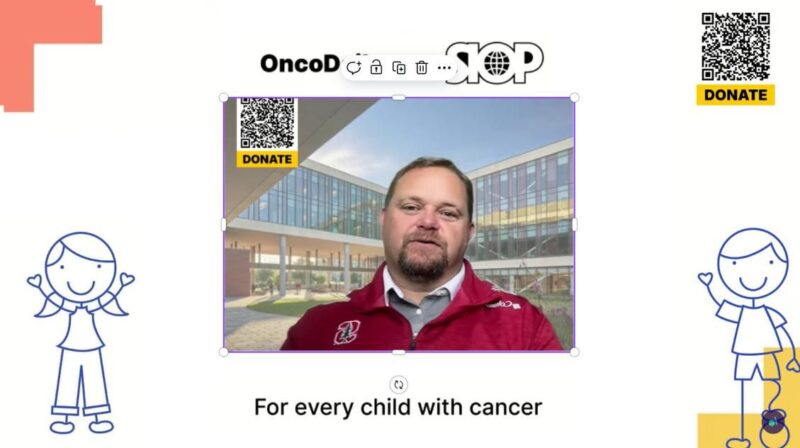
Robert Peter Gale, Emmy award-winning producer and medical researcher, spoke about the importance of collective action in the fight against pediatric cancer, highlighting the remarkable progress in childhood cancer treatment. He noted, “The treatment of cancer in children is one of the outstanding success stories of modern medicine.” He stressed the global disparity, stating that “most of the children in the world don’t have access to the kinds of therapies” available in developed countries.
In his speech, Robert Gale also called on everyone to actively contribute to the fight against childhood cancer, encouraging participation in initiatives like OncoThon.
He encouraged the audience, saying, “Instead of going to Starbucks and buying a latte, save the $5 and it may save the life of a child in Zambia, who knows.” Gale highlighted that every contribution, no matter how small, could have a profound impact on the lives of children battling cancer.
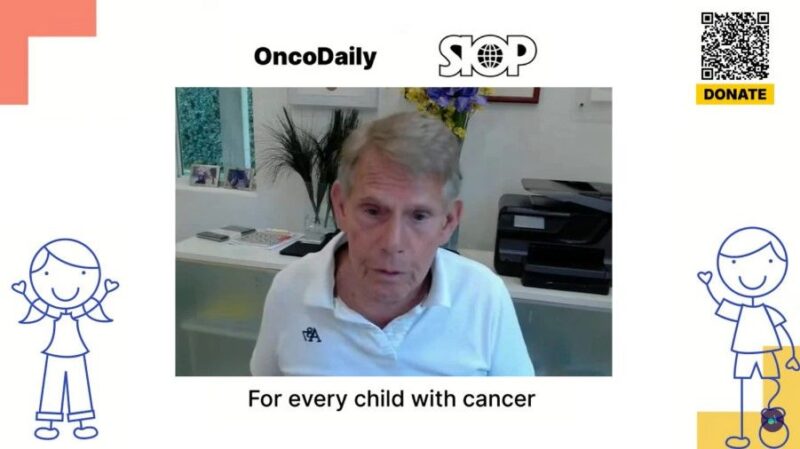
Eric Newman, Founder and Chief Play Officer of Roc Solid Foundation, shared his personal journey as a survivor of hepatoblastoma liver cancer and his commitment to helping children with cancer. He highlighted the importance of play for children diagnosed with cancer, emphasizing that play was an innate human activity and one of the first things taken away from a child when diagnosed.
Through the Roc Solid Foundation, Newman dedicated his life to ensuring that no child battling cancer missed out on the opportunity to play. Over the last 16 years, the foundation built hundreds of playsets across the United States and aimed to expand its efforts globally. Newman passionately expressed his mission to support children and families until a cure for cancer was found, vowing to continue his work hand-in-hand with the cancer research and care community.
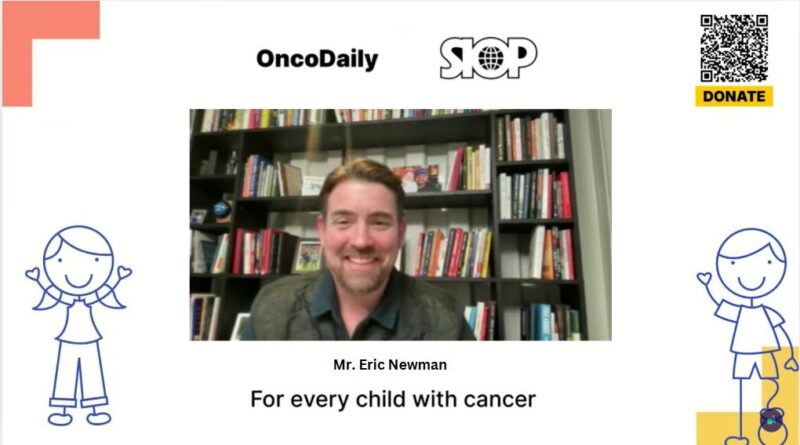
Scott Howard, Past-General Secretary of the International Society of Paediatric Oncology (SIOP), CEO and Founder of Resonance Oncology, talked about driving meaningful impact in cancer care and research. He emphasized the mission of Resonance, which operated at the intersection of research, education, and technology to improve access to care, measure impact, and support medical advancements.
Howard also introduced ACT for Children (Access to Cancer Therapy), a collaborative initiative ensuring that life-saving treatments reached children in resource-limited settings. Led by Servier’s philanthropic efforts, the program partnered with pharmaceutical companies, healthcare professionals, and advocacy groups to create a comprehensive support system, including diagnostics, surgery, radiation, and nursing education. He highlighted the recent launches in Armenia and Guatemala, demonstrating the importance of tailored, holistic approaches in global cancer care.
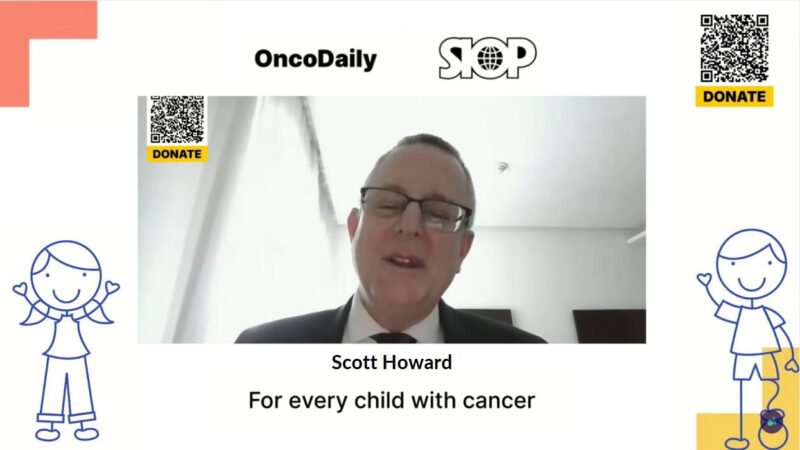
Alli O’Neill, Clinical Director of the Solid Tumor Program and Pediatric Hematology/Oncology at Dana-Farber Cancer Institute, emphasized the importance of global collaboration in advancing pediatric cancer care. She highlighted the value of international trials, such as those conducted by the Children’s Oncology Group and the RA Initiative through St. Jude, in fostering relationships and understanding the realities and challenges of delivering care worldwide.
O’Neill acknowledged how virtual platforms during COVID-19 had expanded opportunities for global connection, enabling collaborative work across borders despite the limitations of remote engagement. She stressed the ongoing need to push boundaries, enhance collaborative networks, and focus on research to ensure every child, regardless of their location or circumstances, received better care.
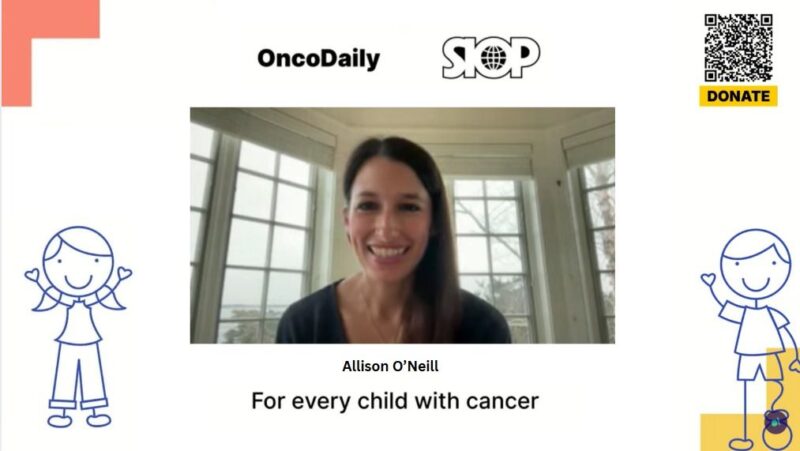
Carlos Rodriguez-Galindo, Director of St. Jude Global, Executive Vice President, and Chair of the Department of Global Pediatric Medicine at St. Jude Children’s Research Hospital, spoke about the critical importance of collaboration in the fight against childhood cancer. In his opening, he thanked OncoDaily and the International Society of Paediatric Oncology (SIOP) for organizing the event so well and expressed his happiness to be part of it. He highlighted the invaluable contributions of pediatric oncologists, families, and doctors, emphasizing the need to accumulate experiences, secure funding, and engage in political efforts for childhood cancer research.
Dr. Rodriguez-Galindo expressed his hope that this kind of movement would continue and urged everyone not to give up. He shared that this moment felt particularly significant, a frontier in the fight, and stressed the importance of participation from popular figures like Messi, Princess Dina Mired, and the Gere family in raising awareness and support for the cause.
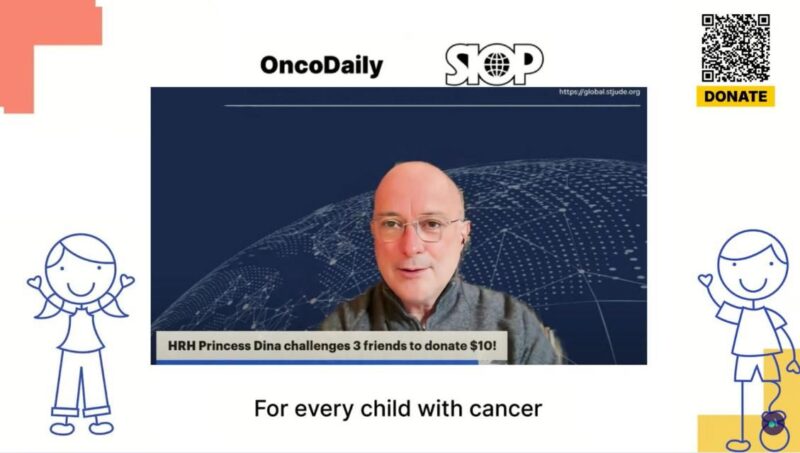
Asya Agulnik, Director of the Global Critical Care Program and Director of the Euro Regional Program at St. Jude Global, shared valuable insights on the importance of a multidisciplinary approach to pediatric cancer care. She emphasized the incredible effort it took from professionals across the world to provide the best care for children battling cancer.Dr. Agulnik also stressed the significance of communicating the impact of scientific work to a broader audience, saying, “Our scientists need to be able to communicate the impact of our work to a broader audience,” and highlighted that initiatives like OncoDaily were uniquely positioned to bridge this gap.
Dr. Agulnik further reflected on the importance of mentorship in growing the field, particularly for early-career scientists, and in promoting diversity within the community. She noted the impact of mentorship on fostering long-term collaboration, ensuring the continued growth of pediatric oncology research, and encouraging others to join in the effort.
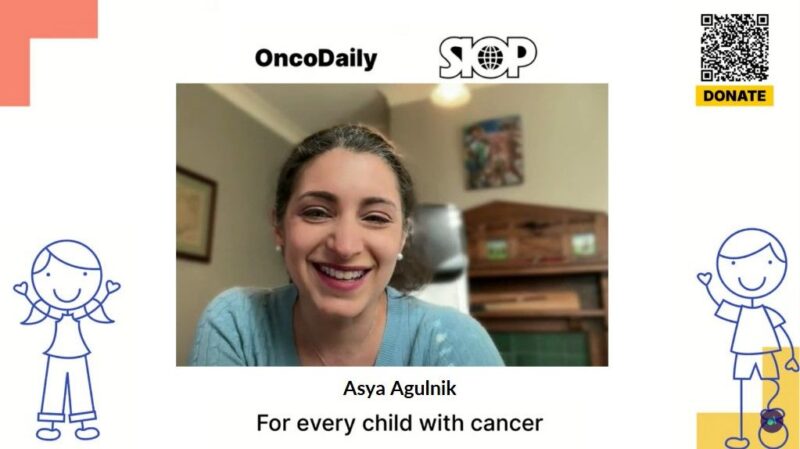
Karen Lintz, Global Outreach Program Manager at The National Children’s Cancer Society (NCCS), talked about the organization’s mission to improve access to life-saving cancer treatments for children worldwide. She highlighted the impact of the Michele Hertlein Global Outreach Program, which had provided critical medical supplies to 53 countries, helping over 213,000 children since 1993.
Lintz honored Michelle Hertlein’s legacy of dedication and called for global collaboration to expand the program’s reach. She encouraged those inspired by their work to explore partnership opportunities through the organization’s website.
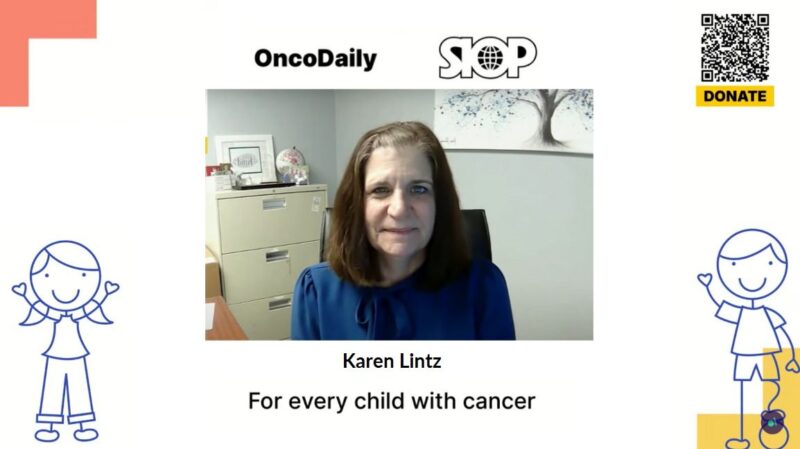
Ginny McLean, Program Director for the Gift from a Child Post-Mortem Tissue Donation Program and Board of Director’s Chair for the CAC2, shared the powerful mission of her organization, which helped families of children who had passed from brain cancer donate tissue to research. She noted, “Most families were not asked whether they would consider tissue donation, yet when given the option, most families chose to donate in the hope that their child’s legacy would help find better treatments and ultimately a cure for those who came after them.”
McLean emphasized how the initiative began with the story of Michael Gustson, a young man who wanted to donate his body to science, and how now, “we’ve had the privilege of supporting over 380 families” in their grief. The program worked to ensure these donations were shared with researchers worldwide to accelerate the fight against childhood cancer.She also highlighted the crucial need for funding, saying, “Without funding for research, this precious tissue… will be underutilized.” McLean stressed that postmortem tissue was key to understanding why treatments failed and how to develop safer therapies. She shared the heartbreaking reality of families who were never given the opportunity to donate, recalling, “There is nothing more heartbreaking than a family saying to me, ‘No one asked me. I wasn’t given the chance.’”
In closing, McLean urged, “Together we can make a difference,” joining the challenge to donate and encouraging others to help fund critical research for children with cancer.
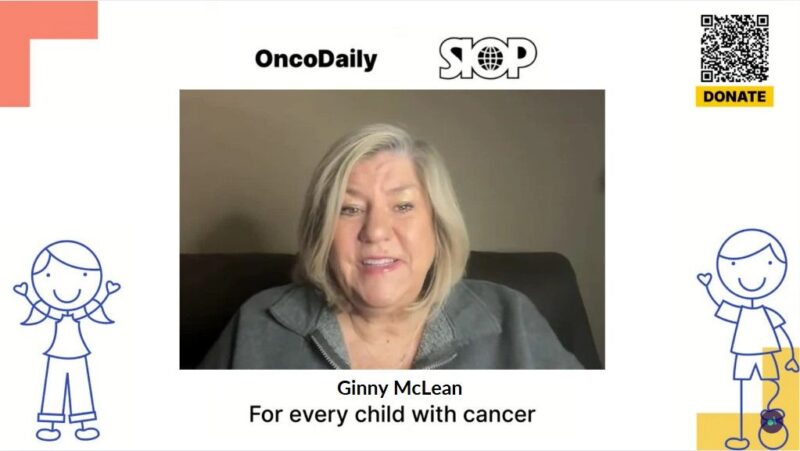
Katherine Lafourcade, Executive Director at the French American Chamber of Commerce Atlanta-Southeast, shared her personal journey as a mother of a child diagnosed with leukemia, emphasizing the urgent need for better pediatric cancer treatments. She highlighted the emotional and physical toll of treatment, the challenges faced by families, and the importance of tailored, targeted therapies for children.
Ms.Lafourcade recounted her son Theo’s diagnosis and subsequent battle with leukemia, including life-threatening complications like septic shock and his time on an ECMO machine. She stressed the critical gaps in pediatric cancer research, calling for greater investment in developing treatments designed specifically for children. Lafourcade reflected on her gratitude for her son’s recovery while underscoring the tragic loss of other children, reminding the audience of the devastating realities faced by many families.She concluded by advocating for increased awareness, collaboration, and funding to ensure more children have access to advanced treatments and better outcomes.
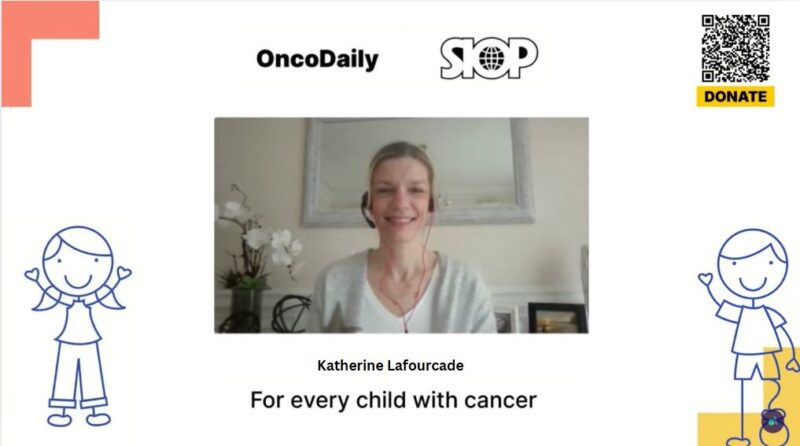
Theo Hediger, a sophomore at the University of Georgia and a cancer survivor, shared his personal experience, highlighting how one always assumes that cancer happens to others, but when it happens to you or your family, it’s a completely different thing. At first, he didn’t understand why it was happening or what he needed to do, but he was fortunate to have access to a strong healthcare system and doctors in his country. Although the situation was very scary at first, Theo spoke about the good moments during his journey, like being able to speak to and motivate others. He reflected on how his friends supported him, saying he had beaten cancer, that horrible disease, but he emphasized that it was a team effort. He credited his recovery to the community of nurses, doctors, his family, and the hospital. He also spoke about survivor’s guilt and the importance of giving back.
When Theo was first diagnosed with leukemia at 12 years old, he thought the word “leukemia” sounded like pneumonia or something similar. After understanding his diagnosis, he asked if he was going to die, and his parents reassured him that he was going to live. He felt incredibly lucky and thankful to have overcome such a devastating disease. He shared that his treatment took nearly four years, a long and difficult process, but in the end, he beat the disease.
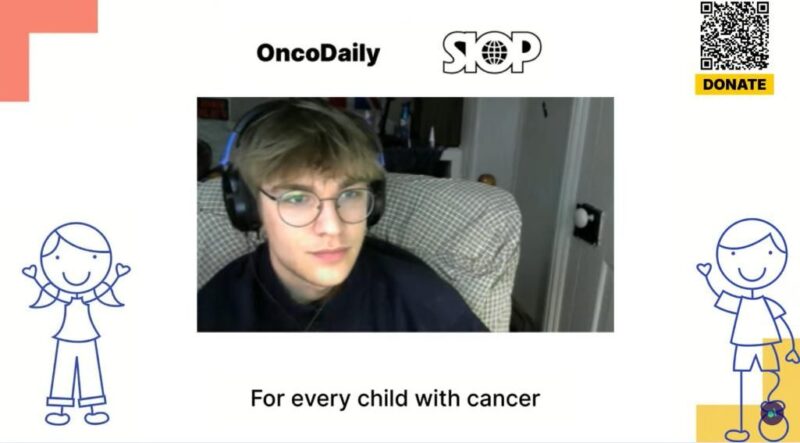
Edith Grynszpancholc, Founder and President of the Fundación Natalí Dafne Flexer, talked about the vital need to support families of children with cancer, highlighting her foundation’s work in advocacy, research, and improving access to treatment. She shared how her personal journey had led her to establish the foundation in Argentina, focusing on emotional support, access to medicine, and collaboration with governments to enhance pediatric oncology care.
She emphasized that despite progress, significant challenges remained, particularly in ensuring access to new medicines and diagnostic tools for all families, regardless of their financial situation. Grynszpancholc called for greater collaboration between foundations, researchers, and the global community to address these disparities and make cutting-edge cancer care accessible to every child.
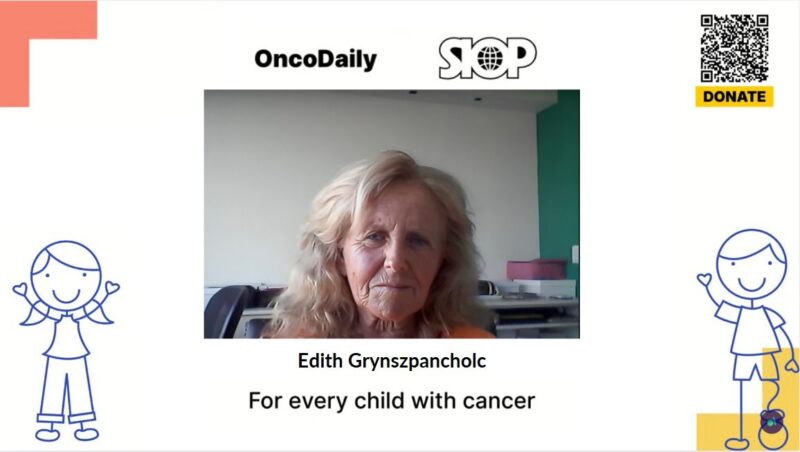
Daniel Bastardo Blanco, PhD, Program Manager of Together by St. Jude online resource at St. Jude Children’s Research Hospital, discussed the crucial need for trusted educational resources for families facing pediatric cancer. He shared, “When a mother, father, or grandparent learned about a diagnosis for their child, their first reaction was shock; they wanted to find as much information as they could to really give hope to their child.”
To help address this need, Together by St. Jude was launched in 2018 as a reliable online resource offering expert-backed information on cancer diagnosis, treatment, and support. He highlighted the recent expansion of the platform, which had come to include resources for adolescent cancer care and information about dealing with side effects and infections.
Blanco also spoke about the challenge of making the platform accessible and culturally appropriate for families around the world. He noted, “Access to care varied and changed very dramatically… whether they were in South America, South Africa, or China.” The Together by St. Jude team collaborated with global partners to ensure the platform met the diverse needs of families facing pediatric cancer.
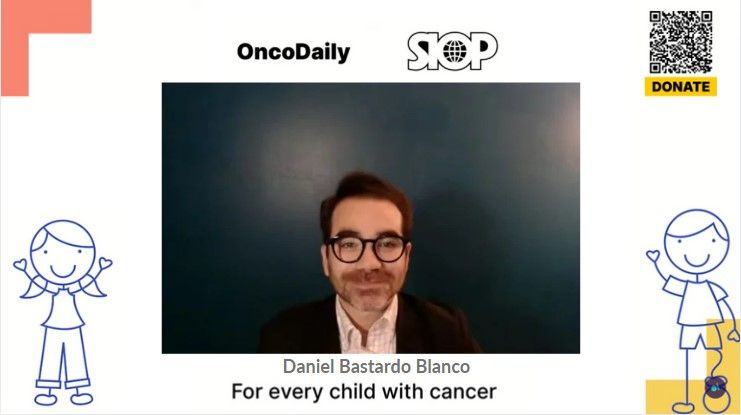
Amalya Sargsyan, Medical Oncologist at Yeolyan Hematology and Oncology Center, Ministry of Health of Armenia and Head of Intelligence Unit at OncoDaily, delivered a compelling address emphasizing the critical importance of global collaboration, equitable access to cancer treatment, and innovation in clinical research. She shed light on Armenia’s remarkable progress in establishing a robust foundation for high-quality clinical trials, which were previously non-existent in the region. Dr. Sargsyan shared how these advancements include the launch of cutting-edge trials, such as immunotherapy for adult patients and pediatric oncology studies, proving that even smaller nations can make significant contributions to global cancer research.
Dr. Sargsyan underscored the need for a unified vision, dedication, and international support to ensure that every cancer patient, regardless of their geographic or socioeconomic background, has an equal chance at survival. This inspiring message reinforces the power of collective action in transforming cancer care worldwide.
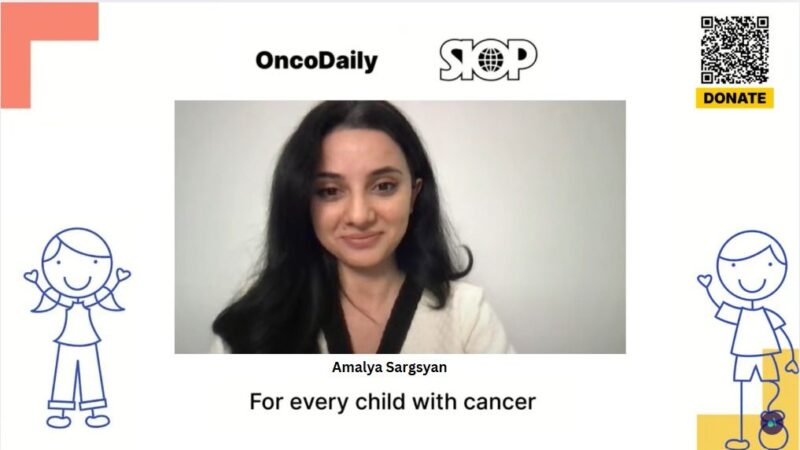
Susanne Wollaert, CEO of the International Society of Paediatric Oncology – SIOP, spoke about the importance of community and collaboration in the fight against childhood cancer. She began by thanking Dr. Gevorg Tamamyan, Dr. Shushan Hovsepyan, Dr. Amalya Sargsyan, Tatyana Khoremyan, and OncoDaily for their participation and for organizing such an amazing event. She highlighted how the congress and the community had grown each year. Wollaert emphasized that while within the community they were aware of the problems, movements like OncoThon were crucial for raising awareness and making these issues more widely known.
She shared her perspective as someone from Switzerland, where healthcare was of high quality, but pointed out that in low-income countries, the place of birth unfortunately determined the quality of treatment. She asked, “Everyone knows about Valentine’s Day, but what about Childhood Cancer Day?” Wollaert stressed the importance of branch work in Europe, Africa, and Latin America, noting that each country had its own specific problems and responsibilities. She emphasized the significance of participation from colleagues around the world to address these challenges.
Wollaert spoke about the unity of the pediatric oncology community, including the volunteers who worked together with the shared goal of helping children. She called this work the most honorable thing anyone could do. She pointed to the unity seen in war zones like Gaza and Ukraine, where pediatric oncologists continued to provide care for children despite the ongoing conflict. She concluded by stressing that children deserved the best treatment and care, noting that it was not just about visiting the hospital, but about ensuring access to quality palliative care as well.
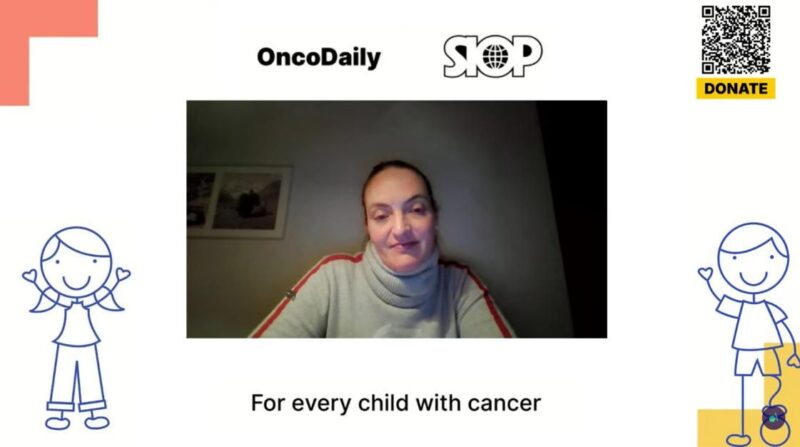
Luke Thomas, CEO of World Child Cancer, spoke about the importance of raising awareness for childhood cancer and the need for global action. He thanked everyone for the opportunity to join such an important event and emphasized that the pediatric oncology community had to work together to understand the challenges it faced and find ways to raise awareness worldwide.
Thomas highlighted the significance of OncoThon, especially with the involvement of popular sports figures and actors, as a powerful way to amplify the message and attract funding for childhood cancer research. He expressed hope that this kind of movement would continue and grow in the future.
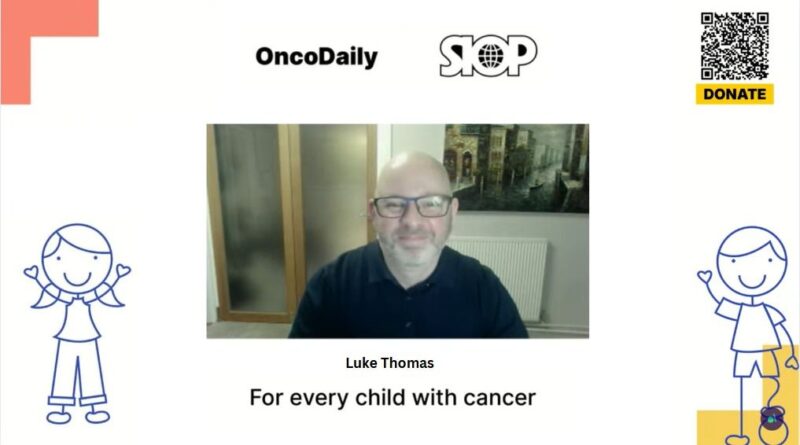
Ellyn Miller, President and Founder of Smashing Walnuts Foundation, shared the heartbreaking story of her daughter Gabriella’s diagnosis with terminal brain cancer, DIPG (diffuse midline pontine glioma). During their journey, her family became passionate advocates for pediatric cancer research, founding the Smashing Walnuts Foundation. “Her tumor was the size of a walnut, and we smashed walnuts every night, signifying it as if it were the tumor,” Miller explained. The foundation’s mission was to raise funds for research, bringing awareness to a disease that still had no cure.
Miller also spoke about the broader challenges within the childhood cancer community, highlighting how many people often turned away from the painful reality of children suffering from cancer. She emphasized the importance of global unity in advocating for pediatric cancer, noting, “Pediatric cancer needs to be a global initiative, we need to make this important and make changes.” She also drew a painful parallel between her daughter’s diagnosis and the story of Neil Armstrong’s daughter, who had died from the same cancer in 1962, showing how little progress had been made in over 50 years.
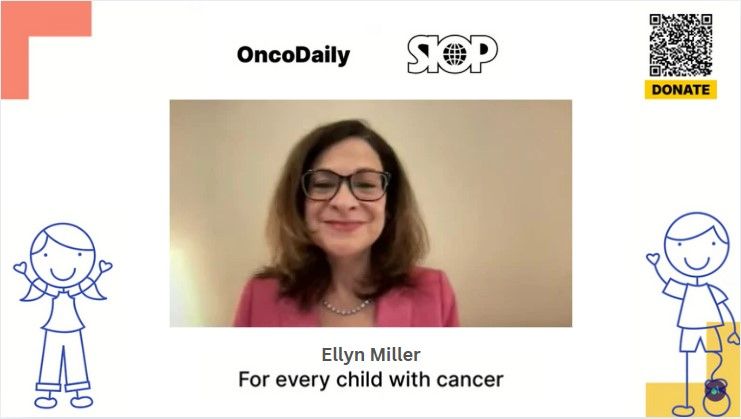
Alexander Rumyantsev, President of the Dmitry Rogachev National Research Centre of Pediatric Hematology, Oncology and Immunology, shared insights from over 30 years of experience organizing hematology and oncology care in Russia. He emphasized the complexity of pediatric cancer treatment, noting that it requires more than just clinical recommendations—it demands advanced technologies, protocols, and specialized training. Dr. Rumyantsev highlighted the role of German colleagues in helping establish a comprehensive system that includes specialized training for nurses, medical personnel, and an integrated team of specialists, including rehabilitation specialists, radiologists, and pathologists.
He further stressed the importance of infrastructure, such as blood supplies, stationary facilities, and rehabilitation centers, to ensure that children receive the best possible care. Dr. Rumyantsev also pointed out the critical need for training both parents and children before embarking on the treatment journey, ensuring they are prepared for the challenges ahead. His talk underlined how collaboration, advanced training, and proper infrastructure are key to providing effective cancer care for children, stressing the importance of comprehensive and coordinated efforts in the fight against pediatric cancer.
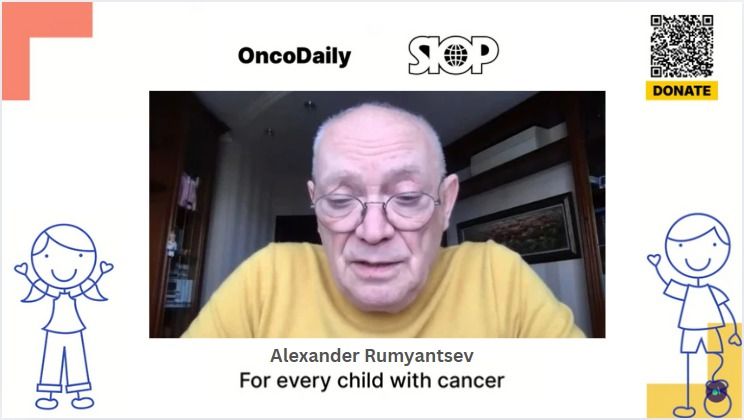
Samira Essiaf, Chief Executive Officer of SIOP Europe, the European Society for Paediatric Oncology (SIOPE), talked about the ongoing challenges of childhood cancer in Europe, highlighting the disparities in resources and care across different countries. She emphasized that while survival rates had improved from 70% to 81%, there was still much work to be done to ensure that every child had a fair chance at recovery.
Essiaf also discussed the importance of advocacy for innovative therapies and equal access to treatment, as well as the need for continued collaboration to improve outcomes for children with cancer in Europe and beyond.
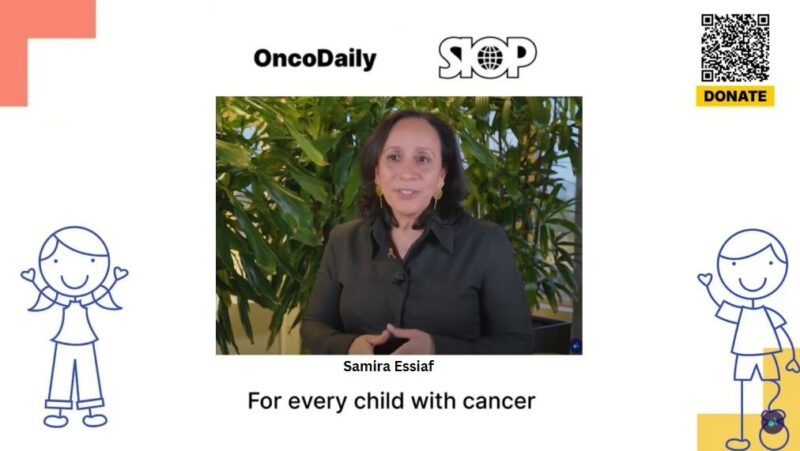
Dr. Azim Mehrvar, Pediatric Oncologist and Hematologist at Golestan Hospital, highlighted the severe impact of sanctions on pediatric cancer care in Iran. Limited access to essential drugs and high treatment costs hinder patient outcomes, making it difficult to provide optimal care.
He also emphasized the lack of access to molecular and genetic testing, restricting the use of advanced therapies like immunotherapy and CAR T-cell treatment. Despite these challenges, conventional chemotherapy has shown promising results in some cases.
Dr. Mehrvar expressed hope that raising awareness of these barriers would lead to solutions, improving access to essential treatments and enhancing patient survival.
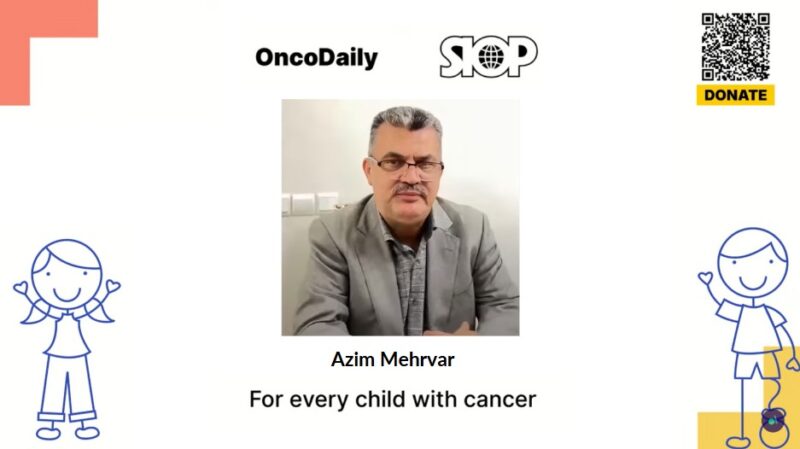
Arasb Ahmadian, CEO of MAHAK Pediatric Cancer Treatment and Research Center, highlighted the severe impact of sanctions on pediatric cancer care in Iran. Limited access to essential drugs and high treatment costs hindered patient outcomes, making it difficult to provide optimal care. He also emphasized the lack of access to molecular and genetic testing, which restricted the use of advanced therapies like immunotherapy and CAR T-cell treatment. Despite these challenges, conventional chemotherapy had shown promising results in some cases.
Ahmadian expressed hope that raising awareness of these barriers would lead to solutions, improving access to essential treatments and enhancing patient survival.
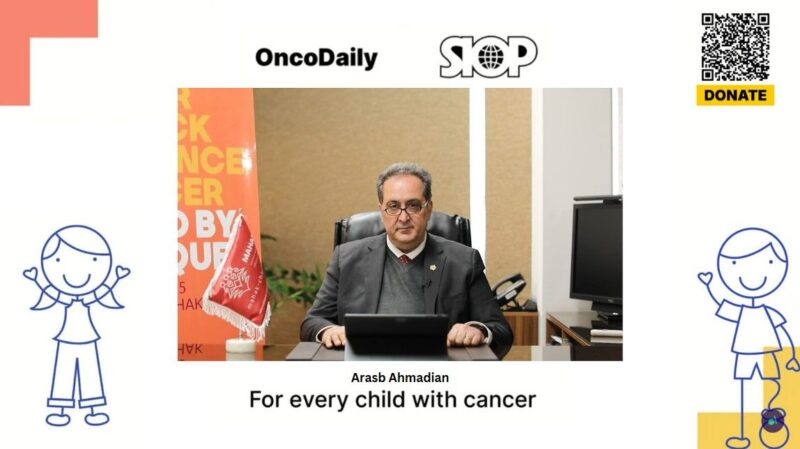
Dr. Kirsty Duncan, Former Minister of Science, Sport and Persons with Disabilities, the Deputy House Leader for the Government of Canada, and an award-winning scientist and policymaker, spoke passionately about childhood cancer and the incredible strength of children facing these challenges. She described these children as superheroes, highlighting the importance of sharing every step of their journey and the critical support they receive from their fathers.
Dr. Duncan expressed her hope that the world will continue to increase support for childhood cancer, stressing that the current survival rates globally are unacceptable. She emphasized the significance of science and research in improving outcomes for these children, and the power of coming together to make a difference in their lives.
While previous generations understood the importance of progress, Dr. Duncan pointed out that there is still much work to be done, as pediatric cancers cannot be treated like adult cancers. She called on everyone to ask what government leaders are doing to support clinical trials for childhood cancer, stressing the need for global collaboration.
Dr. Duncan also highlighted the importance of representation and investment in pediatric cancer care, saying that children need us to educate and advocate for them. She recalled the inspiring children she met during treatment who served as advocates themselves, motivating others.
Dr. Duncan thanked the organizers of OncoThon for their work in supporting these superheroes and reiterated her full support for such important movements.
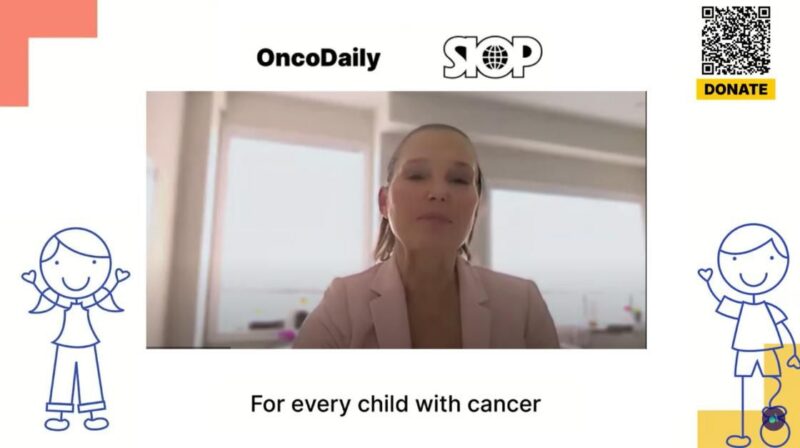
George Kapetanakis, President of the Hellenic Cancer Federation (ELLOK), emphasized the urgent need to address global healthcare inequalities in childhood cancer treatment. He stressed the importance of ensuring that every child, regardless of geographic or socioeconomic barriers, has access to high-quality therapies.
Kapetanakis also discussed the critical challenges of survivorship, including long-term healthcare needs, psychological support, and the transition from pediatric to adult care. He called for global collaboration to advocate for equal access to care, the “right to be forgotten” for cancer survivors, and the enhancement of palliative care services for complex cases.
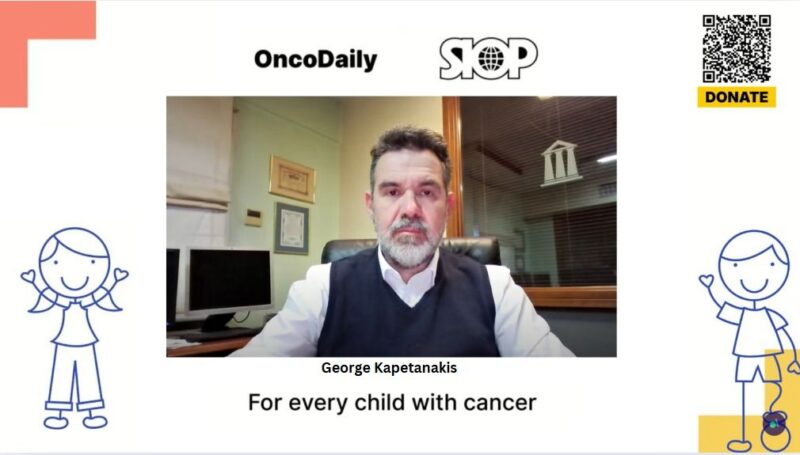
Samvel Danielyan, Senior Adviser at the Immune Oncology Research Institute and Honorary President of the Armenian Association of Hematology and Oncology, highlighted the remarkable transformation of pediatric cancer care in Armenia. He shared how Armenia overcame severe resource shortages in the 1990s, achieving a dramatic increase in pediatric cancer survival rates—from just 5% to over 75%—through international collaboration, staff training, and steadfast dedication.
Danielyan emphasized the critical role of global efforts in improving cancer care for children in developing countries, stressing the need to enhance sanitary conditions, train healthcare professionals, and expand access to life-saving treatments.
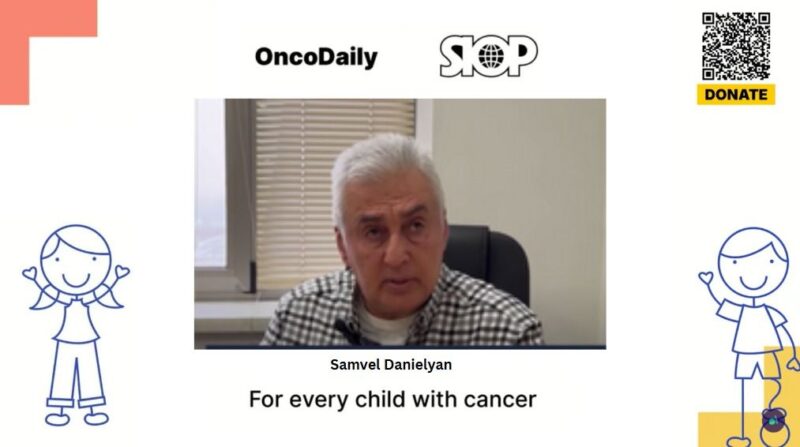
Akira Nakagawara, Chairman of the Executive Council of the Asian Pacific Hematology and Oncology Group (APHOG), expressed his deep appreciation to Dr. Gevorg Tamamyan for organizing such an impactful event. He shared his journey as a pediatric oncologist specializing in basic research for solid tumors. Initially trained as a general surgeon, Nakagawara transitioned into pediatric surgery and later pursued studies in biochemistry to better understand disease mechanisms. His work focuses on molecular and genetic research, particularly in neuroblastoma, as well as osteosarcoma and liver tumors.
Nakagawara recounted a poignant experience with a 6-year-old girl suffering from stage 4 neuroblastoma. Having lost her vision due to the tumor, she once looked up at the sky and said, “The sky is dark.” This moment reinforced his commitment to pediatric oncology and the significance of International Childhood Cancer Day (ICCD), which is often commemorated in his hometown of Saga.
He also highlighted the special place that SIOP holds for him and the importance of working in Asia, the world’s most populous region. Nakagawara emphasized the need for collaboration among colleagues worldwide and expressed his hope that OncoThon would bring happiness and hope to all children affected by cancer.
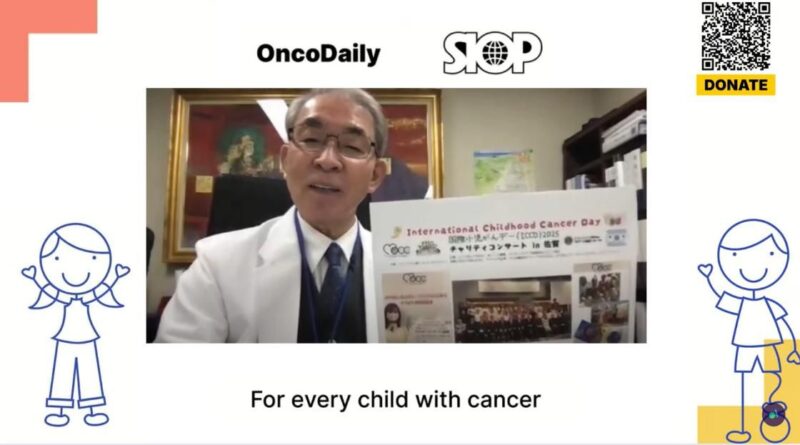
Read more about 2nd Global OncoThon at OncoDaily.


